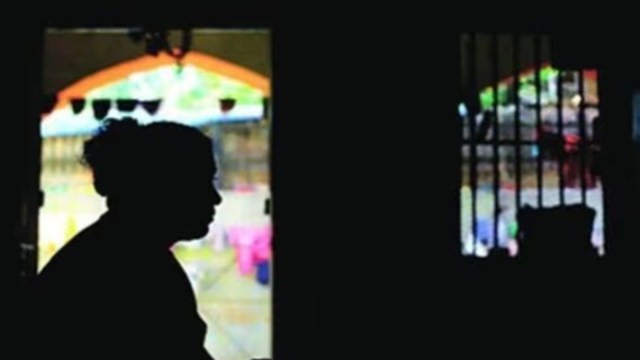SIT in place, but constant return of trafficked women from Arab countries shows menace still prevalent in Punjab
For nearly a decade, women from Punjab have been lured to Arab countries on the pretext of work.
 For nearly a decade, women from Punjab have been lured to Arab countries on the pretext of work. However, upon reaching, the women found themselves ensnared in exploitative situations. File photo
For nearly a decade, women from Punjab have been lured to Arab countries on the pretext of work. However, upon reaching, the women found themselves ensnared in exploitative situations. File photoDespite the formation of a Special Investigation Team (SIT) by the Punjab government last year to combat human trafficking of women, particularly to Arab countries like Oman and Saudi Arabia, the issue persists, raising questions about the effectiveness of government measures.
Recently, three women, who were trafficked in October-November last year returned from Oman and Saudi Arabia, taking the number of such returnees to around a dozen since January this year. While the constant return of trafficked women after being alerted by them may seems to be a positive sign, it also shows that the menace still continues.
For nearly a decade, women from Punjab have been lured to Arab countries on the pretext of work. However, upon reaching, the women found themselves ensnared in exploitative situations. Reports of abysmal working conditions, sexual assaults, delayed salaries and mounting debts highlight the dire circumstances these women face in the foreign countries.
Despite sporadic efforts by various individuals and groups to rescue these victims, including initiatives like ‘Mission Hope’ and interventions by MPs and social workers, the flow of women being trafficked continues.
For instance, AAP Rajya Sabha MP Vikramjit Singh Sahney brought back 82 women in just five months (May 2023 to September 2023) under an initiative of ‘Mission Hope’ launched by him in Oman.
AAP MP Baba Balbir Singh Seechewal managed to bring back around 90 such women in around a year’s time from Saudi Arabia, Dubai and Oman. Even Punjab NRI affairs Minister Kuldip Singh Dhaliwal brought back a couple of such women. Similarly, Dubai-based hotelier and social worker Dr S P Singh Oberoi managed to bring back more than 70 women.
In fact, Punjab Chief Minister Bhagwant Mann had highlighted this issue several times before the 2022 Vidhan Sabha election.
The SIT, tasked with investigating such cases, has registered 24 FIRs against 18 women and six men, all agents, and made some arrests. However, many perpetrators remain at large, operating with impunity.
Notably, Sahney had shared a list of 170 banned travel agents with the DGP but The Indian Express found some of them still active in Punjab. Even the Ministry of External Affairs (MEA) has imposed a ban on these travel agents.
According to officials, the exact number of women travelling to the Arab countries for work is unavailable since instead of work visas, they are travelling on tourist visas to Dubai. From Dubai, they are subsequently being sent to other countries by the agents.
However, if one examines the number of women being repatriated from these countries, it exceeds 100 in the last approximately 10 months since the formation of the SIT. “Most of these women went to the Arab countries after the formation of the SIT, reflecting that there is no check on such travel agents in the state,” said Seechewal.
According to the SIT, which is being headed by the Superintendent of Police Randhir Kumar, the modus operandi of unscrupulous agents involves deceptive practices and promising work visas but sending women on tourist visas instead.
The detailed interviews of such women by The Indian Express revealed that illiterate or semi-literate women from impoverished backgrounds, seeking to alleviate their families’ economic hardships, fall prey to these schemes. They are often misled by local acquaintances or close relatives, ultimately ending up in exploitative situations abroad.
Despite the grim realities documented in media reports and social media, many of these women claimed ignorance while talking to The Indian Express, underscoring the need for comprehensive awareness programmes at the grassroots level.
The sources at the Ministry of External Affairs (MEA) said that the role of embassies is crucial, as they can curb such trafficking by scrutinising visa applications more closely. “Why would a poor and illiterate woman go on a tourist visa to Dubai?” said an official of the MEA, adding that the demand for household workers in Arab countries provides a lucrative opportunity for traffickers, who exploit vulnerable women for profit.
“To tackle this multifaceted issue effectively, collaboration between government agencies, more stringent laws, activeness of social organizations, law enforcement and awareness through social media in local language, through nukkad nataks and Sabhas in villages and semi urban areas, which are the main targets of these agents, efforts of the MEA is imperative,” said Hoshiarpur-based prominent Social worker Jai Gopal Dhiman.
“Only through concerted efforts can the scourge of female human trafficking from Punjab to Arab countries be curtailed,” said an MEA official, adding that much efforts are not being made to make the gullible women and their respective families aware in Punjab against such alarming trends of women trafficking.
The official added, “There should be exemplary punishments for the unscrupulous travel agents. Most of the agents remain in jail for some time and then they come out on bail and restart their illegal activities.”
A Punjab government official said, “There is a need to reach the deep roots of this business expanding outside Punjab. The SIT needs to carry out more investigations about such outside agents who are hiring local agents in Punjab to mislead the poor women. The government needs to make more stringent laws.”







